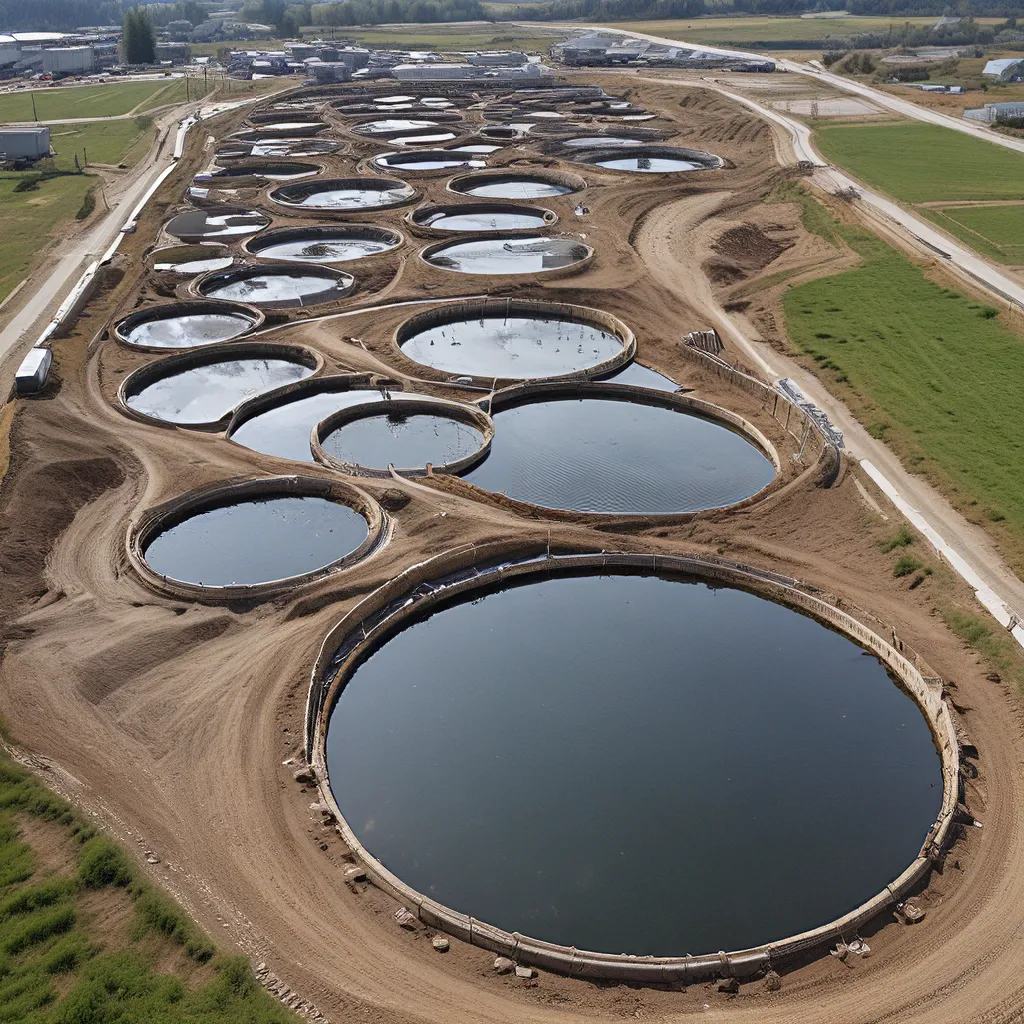
What an exciting time to be in the wastewater treatment industry! As a professional in this field, I’ve witnessed some remarkable transformations over the years. Gone are the days when wastewater was simply something to be flushed away and forgotten. Nope, these days we’re turning that murky stuff into a veritable goldmine of valuable resources.
Unlocking the Treasure Trove
You know, when I first got into this business, the conventional wisdom was that wastewater and sludge were just a big headache – something to be managed and disposed of as cheaply as possible. But boy, have times changed! We’re now seeing wastewater and sludge as a reservoir of resources that can be harnessed for all sorts of amazing things – energy generation, nutrient recovery, and the production of all kinds of value-added products.
It’s like we’ve discovered this hidden treasure trove, just waiting to be tapped into. And with the world’s population growing and the demand for freshwater skyrocketing, the timing couldn’t be better. We’re talking about things like phosphorus, ammonium, proteins, lipids, enzymes, and even natural pigments – all of which can be recovered from wastewater and sludge.
Advancements in membrane technology, enzymatic catalysis, and microalgae cultivation have been game-changers, allowing us to extract and purify these valuable compounds with unprecedented efficiency. And the best part? We’re not just treating the wastewater – we’re actually turning it into a resource that can benefit the environment and the economy.
Embracing the Circular Economy
It’s all part of this bigger shift towards a circular economy, where we’re trying to maximize the use and reuse of resources rather than just discarding them. That’s why we’re putting so much emphasis on nutrient recovery, biofuel production, and the creation of valuable bioproducts from wastewater.
Think about it – brine valorization is a prime example of how we’re transforming waste streams into valuable commodities. By extracting things like salts, minerals, and other useful chemicals from the brine produced by desalination plants, we’re not only reducing environmental impact but also creating new revenue streams.
And it’s not just about the money, you know? It’s about sustainability, resilience, and doing our part to build a better future. By recovering nutrients like phosphorus and nitrogen from wastewater, we’re helping to address global food security concerns and reducing the strain on finite natural resources.
Overcoming the Challenges
Of course, it’s not all rainbows and unicorns. There are still plenty of challenges to overcome. Membrane fouling, enzyme stability, and scaling up microalgae cultivation are just a few of the technical hurdles we’re working to solve. And then there’s the whole issue of consumer acceptance – some people are still a bit wary of using products made from “waste.”
But you know what they say – where there’s a will, there’s a way. And let me tell you, the wastewater treatment industry is full of innovative thinkers and problem-solvers who are committed to making this circular economy thing work.
I mean, just look at some of the cool stuff we’re doing with bioelectrochemical systems, enzyme-mediated separation, and microalgae-based treatment processes. It’s like we’ve got a whole toolkit of cutting-edge technologies that are helping us extract value from wastewater in ways that were unimaginable just a few years ago.
Towards a Sustainable Future
And the really exciting part? I think we’re just scratching the surface. As research continues and new innovations emerge, I can’t even begin to imagine the incredible possibilities that lie ahead. Maybe we’ll be able to produce our own biofuels, biopesticides, and biofertilizers right from the wastewater stream. Or perhaps we’ll discover even more valuable compounds that we haven’t even dreamed of yet.
The way I see it, the future of wastewater treatment is all about maximizing resource recovery, minimizing waste, and creating a more sustainable, circular economy. It’s about transforming something that was once seen as a burden into a strategic asset that can help address some of the world’s most pressing challenges.
So if you’re a young professional or student looking to get into this field, I say go for it! There’s never been a more exciting time to be part of the wastewater revolution. Just be prepared to think outside the box, get your hands dirty, and maybe even have a little fun along the way. After all, who knows what kind of treasure we might uncover next?